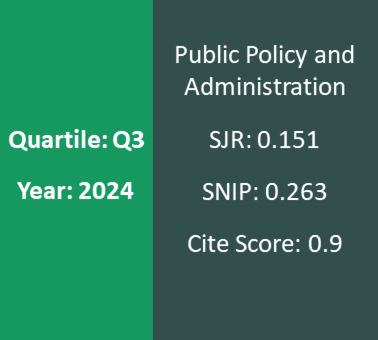Human Resource Management in Public Service: PerformanceEvaluation and Professional Development
Keywords:
public service, professional development, performance evaluation.Abstract
The article focuses on two aspects of human resource management in public service: performance evaluation of civil
servants and professional development. During the first five years of Lithuania’s independence the training of civil
servants was delivered on an ad hoc basis. In 1995 the Law on the Officials of the Republic of Lithuania was passed. It
was a starting point for the creation of the civil service training system. In 1999 after the adoption of the Law on Public
Service, the need to legally stabilize the market of civil servants’ training became apparent. Lithuania began to create its
own framework of public service. In 2002 after the Law on Public Service entered into force it was necessary to start
rationalizing the training system of civil servants relating it with the annual performance evaluation of civil servants and
career planning. In 2001 and 2002 the Ministry of the Interior carried out a survey of public institutions. According to the
results of the survey it was possible to identify the priority areas for civil servants training and the priority groups of civil
servants that should undergo this training. During the implementation process of the civil service training system the
problems of insufficient financing and insufficient motivation of personnel services have been identified. The first steps of
the system of performance evaluation of civil servants in Lithuania were made in July 2002 after the new edition of the
Law on Public Service was passed. The system of performance evaluation of civil servants is related with the remuneration
and the career motivation. The procedure of civil servants’ evaluation will be developed after the analysis of the
functioning system of performance evaluation.





